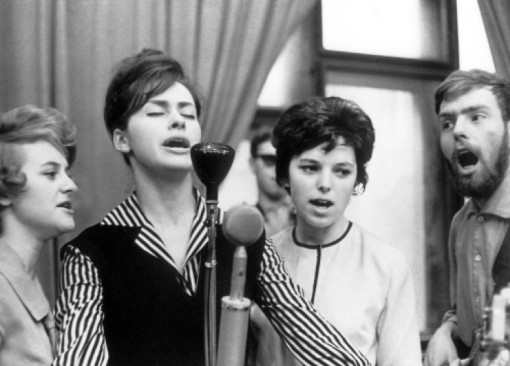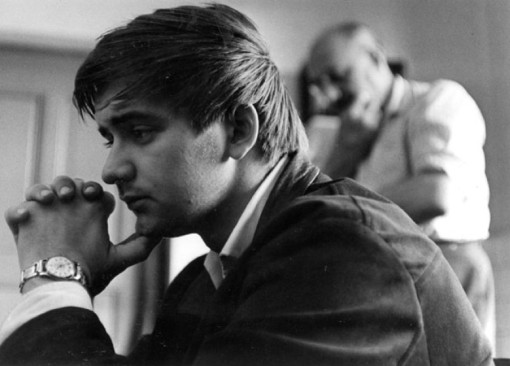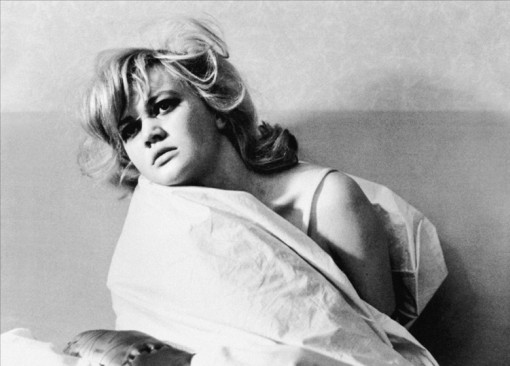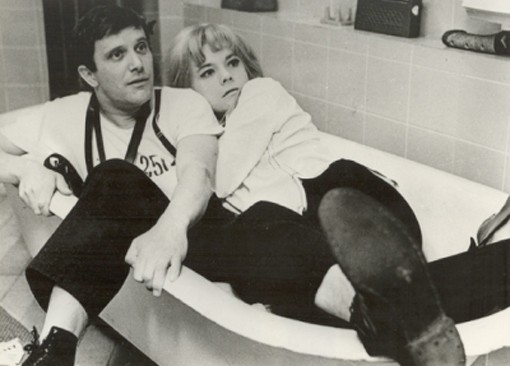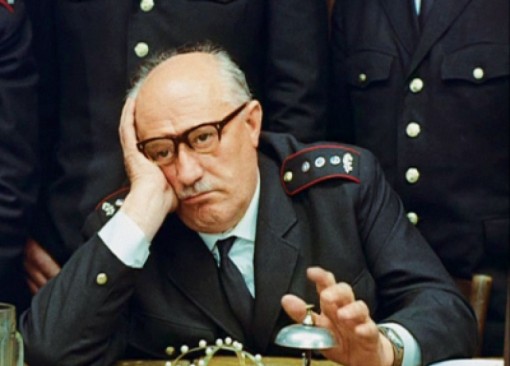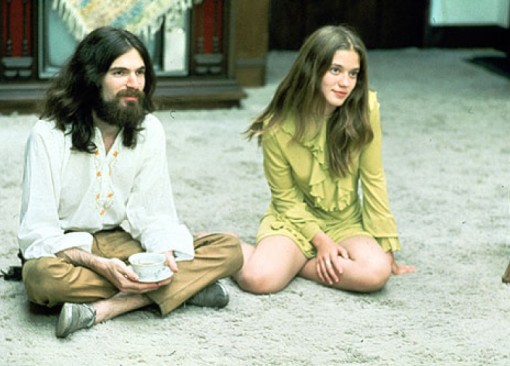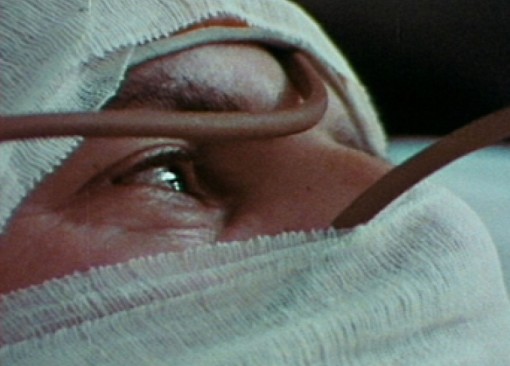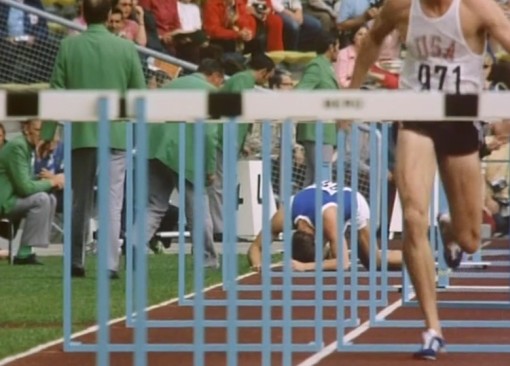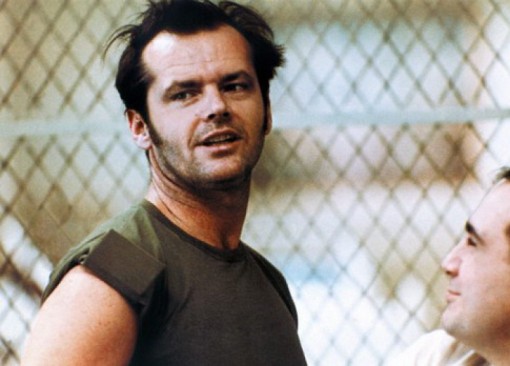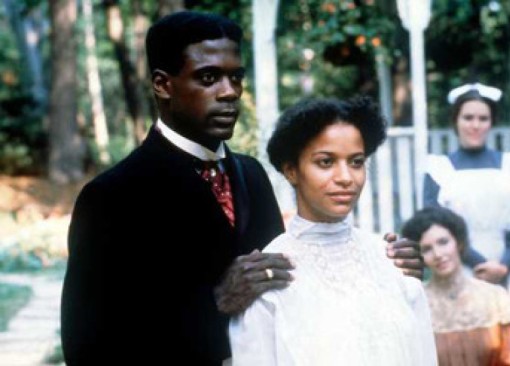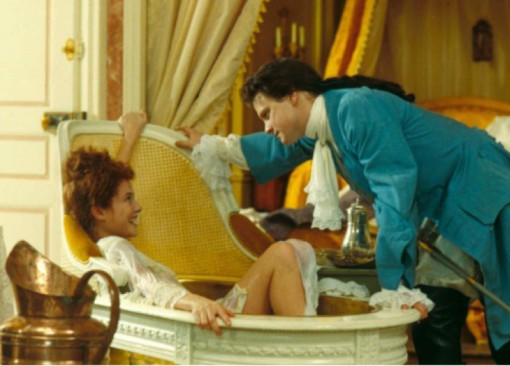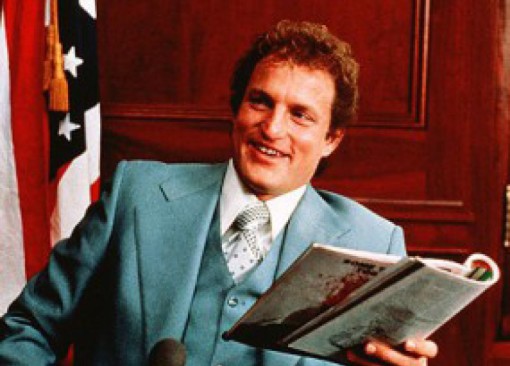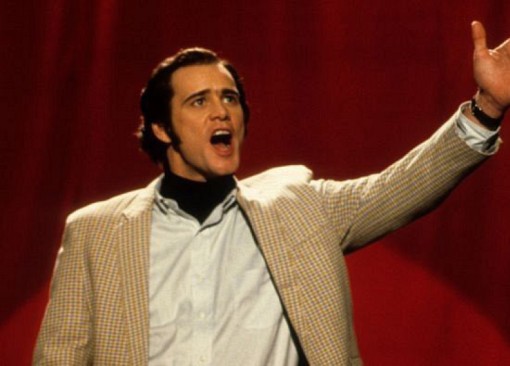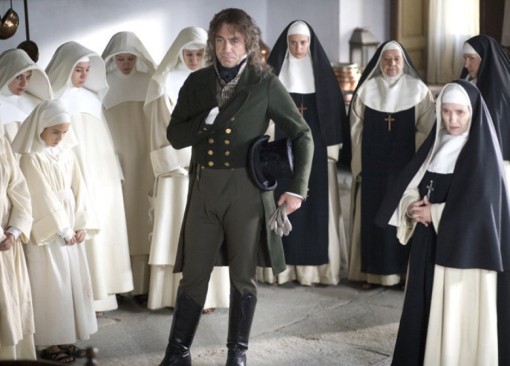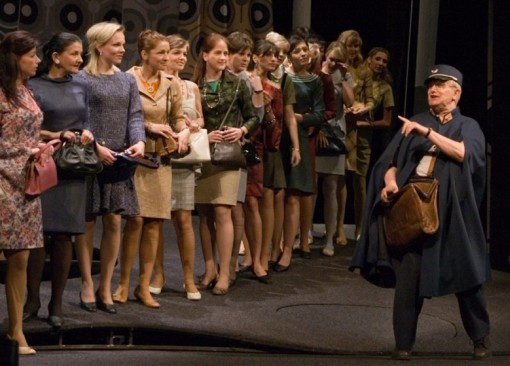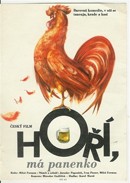“The movie is just plain funny. And as a parable it is timeless, with relevance at many times in many lands. Remarkable, how often when I learn of a bureaucratic brainstorm I think of the fireman moving the farmer's chair closer to the flames.”
“The Firemen’s Ball” tells the story of a volunteer firemen’s ball in a provincial town. The film is a satire on a town under the communist regime, and a parable about a community where one person’s failure can decide the fate of others. Forman’s sarcasm doesn’t spare anybody or anything. For this reason, “The Firemen’s Ball” reveals human stupidity, dullness and arrogance, as well as the empty rhetoric of questionable authority.
About the movie
The film “The Firemen’s Ball” follows a provincial volunteer fire department as they organise some fun activities for their ball. The ball gradually becomes more and more ridiculous; the beauty contest becomes a farce, the mothers protest about the ball committee, the fathers drink, and the daughters act embarrassed.
The ball falls into total chaos when one of the houses in the village catches fire. The drunken firemen try unsuccessfully to drive the fire engine. The people at the ball try to help the owner of the house save his belongings, and try to put out the fire with snow to no avail.
One of the women at the party asks the man whose house is on fire, “Old man, aren’t you cold?” so another person replies, “So take him closer to the flames.”
Eventually everyone returns to the dance hall, and the ball continues. However, upon their return, they discover that a large part of the raffle prize was stolen. In order to find the missing money, the committee turns the lights off so it will “magically” reappear. But, when they turn the lights back on, even more money is missing.
“We cannot allow such shame. We have to somehow explain to the people. What will they say?” the firemen speculate. “When everything´s been stolen they can’t win anything,” one of them says. “But what about those who bought the tickets honestly in good faith and didn’t steal anything?” says another. “ They should have stolen something, too,” replies the first. In the end, everyone agrees that the lottery prize money has been stolen and everyone was there, so therefore everyone is a suspect. So, the end result is “Let everybody shut up”.
In this early film, Forman worked with the principles of what was called the “cruel theatre of the sixties,” which was an approach that stressed the representation of reality without artistic glamorization. Forman and his fellow screenwriters Jaroslav Papousek and Ivan Passer created a metaphor for the society of time, which was distorted by socialist morality and prioritized official pretense over human dignity and honour.
Paradoxically, this uncompromising parable irritated both the card-carrying communist and its capitalist co - producer Carlo Ponti who believed that it ridiculed common people. Despite these difficulties, the film had its world premiere in the United States and was nominated for an Oscar. “The Firemen’s Ball” functioned as Milos Forman’s ticket to American filmmaking, and thus to freedom.
Trivia
- The movie was as a Czech-Italian co-production with the famous Italian producer Carlo Ponti. The significantly large budget of 80,000 dollars enabled Forman to shoot the film in colour. However, Ponti didn’t like Forman’s sarcastic approach, so he quit the project and demanded his money his money back citing breach of contract. Ponti bought 75 minutes of the film product but he was only delivered 73 minutes. Forman could have been accused of causing “economic damages to the state,” a criminal offence that carried a mandatory prison sentence of up to ten years. Ultimately, the French producer Claude Berri saved Forman by buying the foreign rights for the movie. Berri paid Forman’s debt to Czechoslovakian Filmexport and he arranged the distribution of the movie worldwide.
- This was both Forman and cinematographer Miroslav Ondricek´s first time shooting colour film. This choice proved to be somewhat problematic; the extras playing workers originally wore blue outfits, but they did not register well on film. As a result, Ondricek made everybody, including extras avoid blue and wear other colours.
- “The Firemen’s Ball” was the closing film at the New York Film Festival in 1968. This helped the film earn an Oscar nomination.
- The movie was one of the three Czechoslovakian titles in the official competition of the festival in Cannes in 1968 (“All My Compatriots”by Vojtech Jasny and “A Report on the Party” and “Guests” by Jan Nemec); it was to be historically the strongest representation of Czechoslovakian cinematography so far at the event. However, the whole festival was cancelled because of the disruptions caused by the student protests and the French filmmakers´ strike in May of that year.
- “The Firemen’s Ball” was finished in 1967 but it had to wait almost a year to screen in Czechoslovakia due to censorship laws. It was finally shown in 1968 thanks to the revivalist political movement called the Prague Spring. It was still shown in August in Czechoslovakian cinemas when the democratic changes in Czechoslovakia were interrupted by the occupation of the Warsaw Pact armies. Afterwards, it was banned and put away in a safe by the new normalization political authorities.
Milos Forman about the movie
- "I didn’t intend to shoot a political allegory – I don’t like it in movies – but in this story of the looted raffle, the guiding lights of the Communist Party perceived a satirical swipe at them.”
- “Papousek and I headed to the Krkonose Mountains, where we started to write a screenplay about an army deserter living in the bowels of Prague’s Lucerna. Ivan Passer came to help us, but even he couldn’t get us out of our writer´s block. The three of us decided to forget about the script and go to a ball the local fire brigade was throwing that Saturday. We could watch people, get drunk, talk to some girls, and just relax. The Vrchlabi Fire Department was staffed by volunteers. The men mostly worked factory jobs. They came to have a great time. They held a beauty contest for their homely daughters. They ran a raffle. They drank and they argued with their wives. We were completely astonished. The next day Papousek, Ivan, and I just couldn’t stop talking about the previous evening. On Monday, we were developing our impressions into “what-ifs?”. Then on Tuesday, we began writing. The script nearly wrote itself. When any questions came up, we just headed back to Vrchlabi and checked with the firemen. We found the tavern where they drank, played cards and shot pool. They got to know us and talked to us openly. And six weeks later, we had the first draft of “The Firemen’s Ball”.”
- “In the past, they would have simply prohibited the showing of the film, but in that strange era before The Prague Spring, the communist leadership was losing its nerve and had started crafty maneuvers around its unpopular decisions. Now they would set up a screening of a film they wanted to ban in front of an invited audience. They planted a few provocateurs in the crowd to shout that the movie insulted the working people, and then ordered the film removed from distribution on the grounds that the “people” had demanded it.”
- ”The first public preview of “The Firemen’s Ball” was scheduled for Vrchlabi. The cultural communist sympathizers chose the place because they figured that the Vrchlabi folks would feel ridiculed once they saw the way I portrayed them on the screen. They thought my firemen would be so furious that I´d be ordered to stay away from Vrchlabi because my personal safety at the screening could not be guaranteed. In reality, the Vrchlabi crowd laughed uproariously throughout the show. When the discussion started, the first of the Party plants rose and gave this by-the-numbers speech about how the film insulted the working people. He finished and one of the firemen, whose name was by chance also Novotny, raised his hand. (Novotny was the name of the president of Czechoslovakia, editor’s note). Mr. Novotny got up. “Well, I don’t know, comrades, I just don’t know. This comrade says this is an insult to us, and maybe it is, but do you people remember when Jira’s goat shed caught fire? And we were all drinking in the tavern? And how by the time we finally staggered out there, we forgot the nozzles? Remember? And then the whole fire truck tipped over on that ice. I still remember how Jira’s goat burned up. Hell, we don’t even look that bad in this movie.”
Reviews
English
New York Times (Renata Adler)
Ce-review.org (Andrew J. Horton)
Criterion.com (James Lewis Hoberman)
WorldsCinema.com
Sun Times (Roger Ebert)
New York Press (Eric Kohn)
Senses of Cinema (Pedro Blas Gonzalez)
BBC.co.uk (George Perry)
Filmcritic.com (Christopher Null)
Only The Cinema (Ed Howard)
Old School Reviews (John Nesbit)
Czech
Odaha.com (Tomáš Odaha)
Nostalghia.cz
French
German
Filmzentrale.com (Ulrich Behrens)
Portuguese
Locations
Czechoslovakia (today’s Czech Republic)
-
Vrchlabi
- Community Centre Strelnice
- All of the interior scenes at the firemen’s ball.
- Horska Street
- The fire at the log house. This building burnt down during the moviemaking. The previous owner sold it to Barrandov Studios for 12 000 CZK (472 EUR).
Awards
| Event | Place | Award | Category | W/N |
|---|---|---|---|---|
| 1969 | ||||
| Oscar® - Academy Awards (42th Annual) | Los Angeles USA | Oscar® | Best Foreign Language Film |  |
Credits
| Barrandov Film Studios Prague presents | |
| in Czechoslovak - Italian co-production | |
| Story and Screenplay by | Milos Forman, Jaroslav Papousek, Ivan Passer |
| Screenplay Editor | Vaclav Sasek |
Starring |
|
| Head of Committee | Jan Vostrcil |
| Committee member | Josef SebAnek |
| Committee member | Josef Valnoha |
| Committee member | Frantisek Debelka |
| Guard of tombola, Josef | Josef Kolb |
| Retired Fire Chief Stöckl | Jan Stöckl |
| Committee member | Vratislav Cermak |
| Committee member | Josef Rehorek |
| Committee member | Vaclav Novotny |
| Committee member | Frantisek Reinstein |
| Committee member | Frantisek Paska |
| Karel | Stanislav Holubec |
| Ludva Metelka | Josef Kutalek |
| Old Man Havelka | Frantisek Svet |
| Comitee member | Ladislav Adam |
| Lifesaver | Jiri Libal |
| Standa | Antonin Blazejovsky |
| Waiter | Stanislav Ditrich |
| Josef's wife | Milada Jezkova |
| Wife | Jarmila Kucharova |
| "Miss" Contestant, Metelka's daughter Ruzenka | Alena Kvetova |
| "Miss" Contestant Marie | Anna Liepoldova |
| "Miss" Contestant | Miluse Zelena |
| "Miss" Contestant | Marie Slivova |
| Jarka | Hana Hanusova |
| "Miss" Contestant | Hana Kuberova |
| First Assistant Director | Jaroslav Papousek |
| Camera Operator | Eduard Kaderabek |
| Assistant Production Manager | Jaroslav Solnicka |
| Make up | Rudolf Hammer |
| Wardrobe | Zdena Snajdarova |
| Set Decorator | Vladimir Macha |
| Music by | Karel Mares |
| Music played and recorded by | Film Symphonic Orchestra (conducted by Dr. Stepan Konicek) and Central Music of CSL Army |
| Art Director | Karel Cerny |
| Film Editor | Miroslav Hajek |
| Sound | Adolf Böhm |
| Production Manager | Rudolf Hajek |
| Director of Photography | Miroslav Ondricek |
| Directed by | Milos Forman |
| Production Unit | Jiri Sebor, Vladimir Bor |
| Processed at the Barrandov Film Laboratories, Prague | |
| © 1967 Barrandov Film Studios | |





